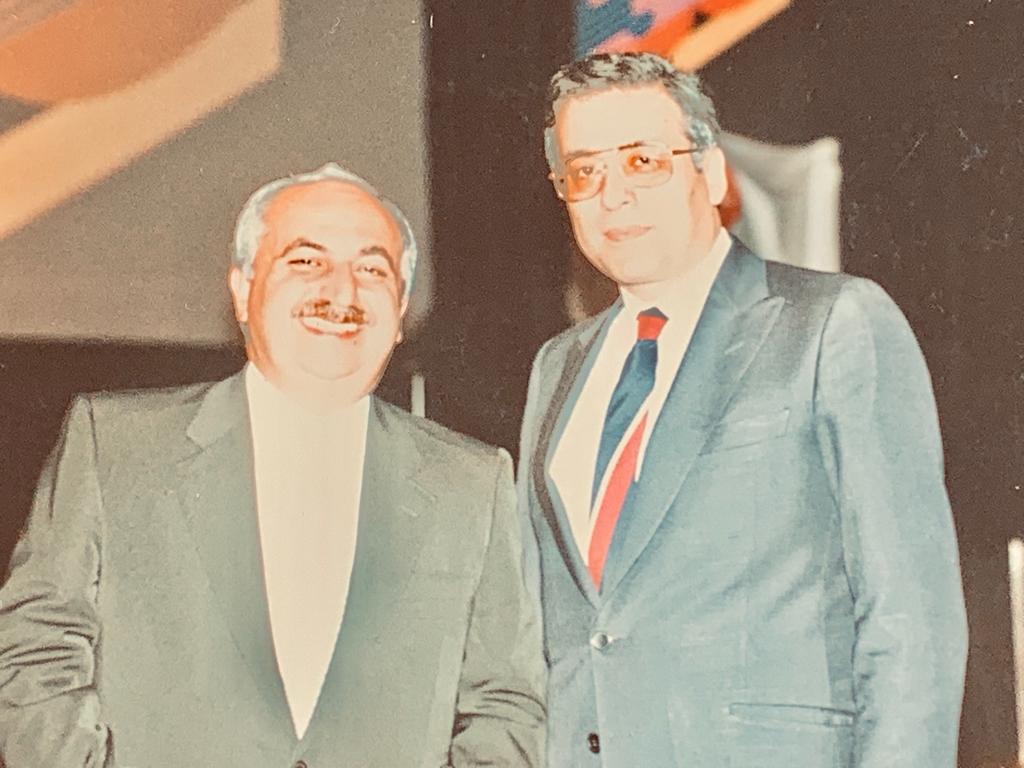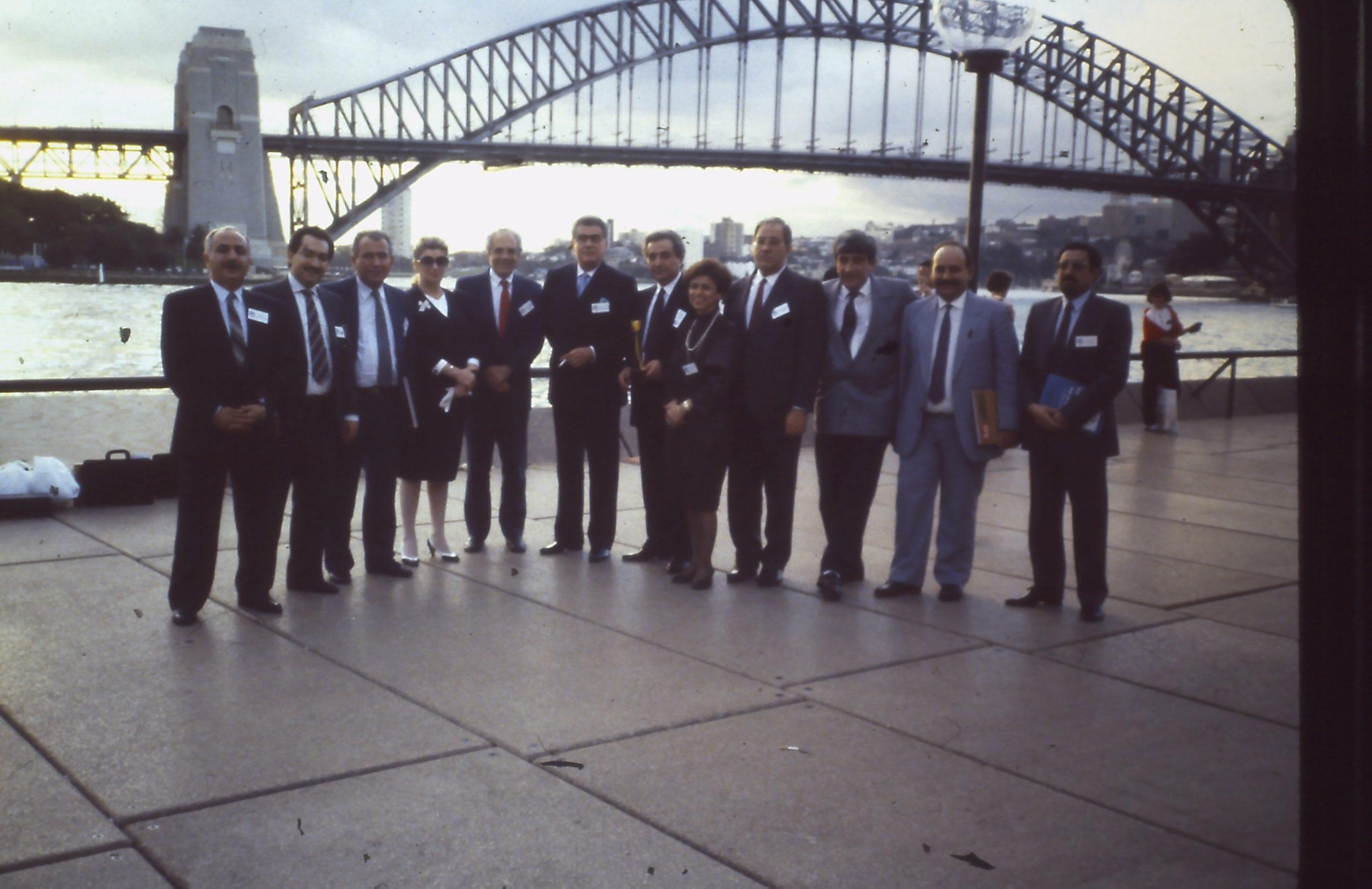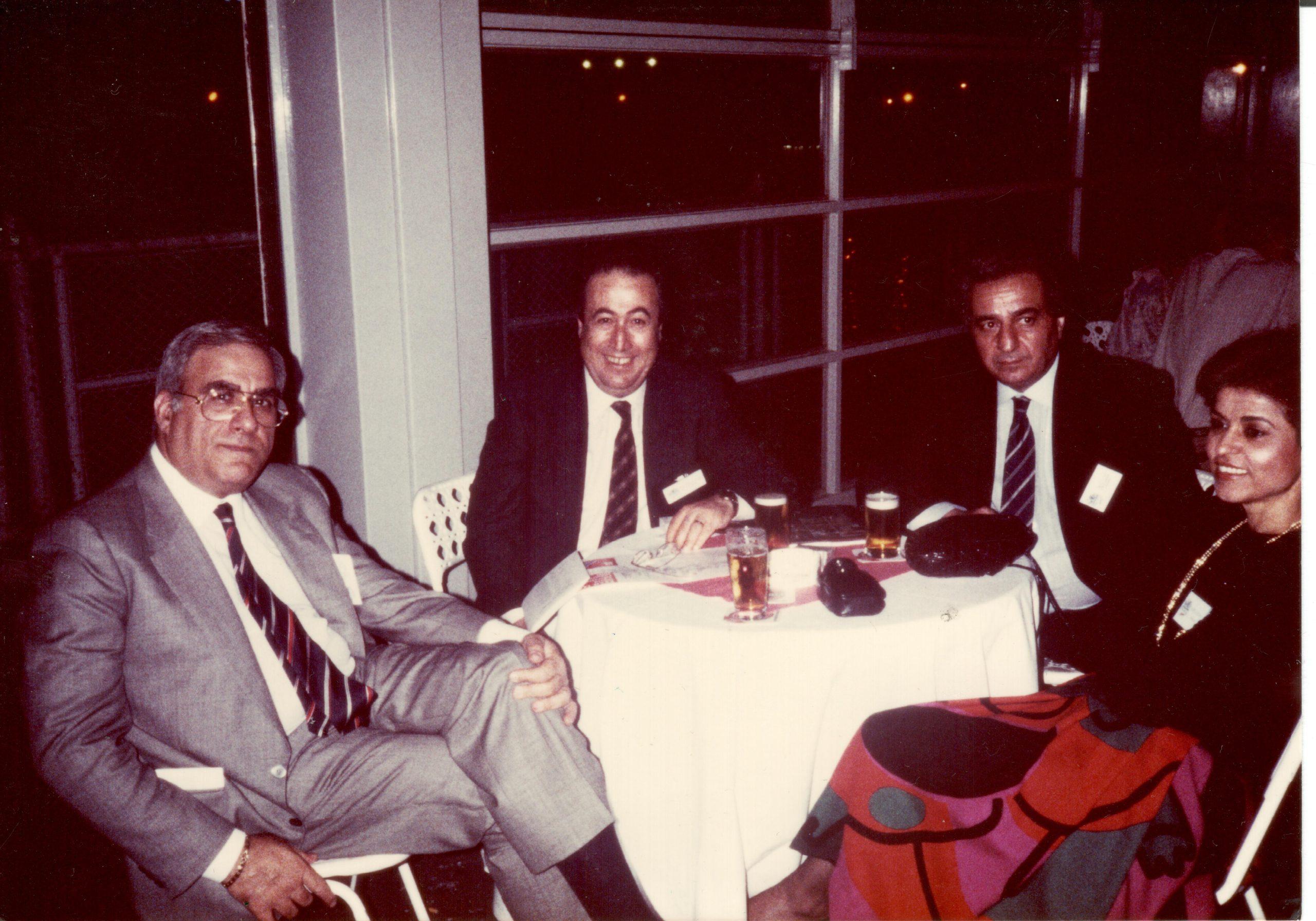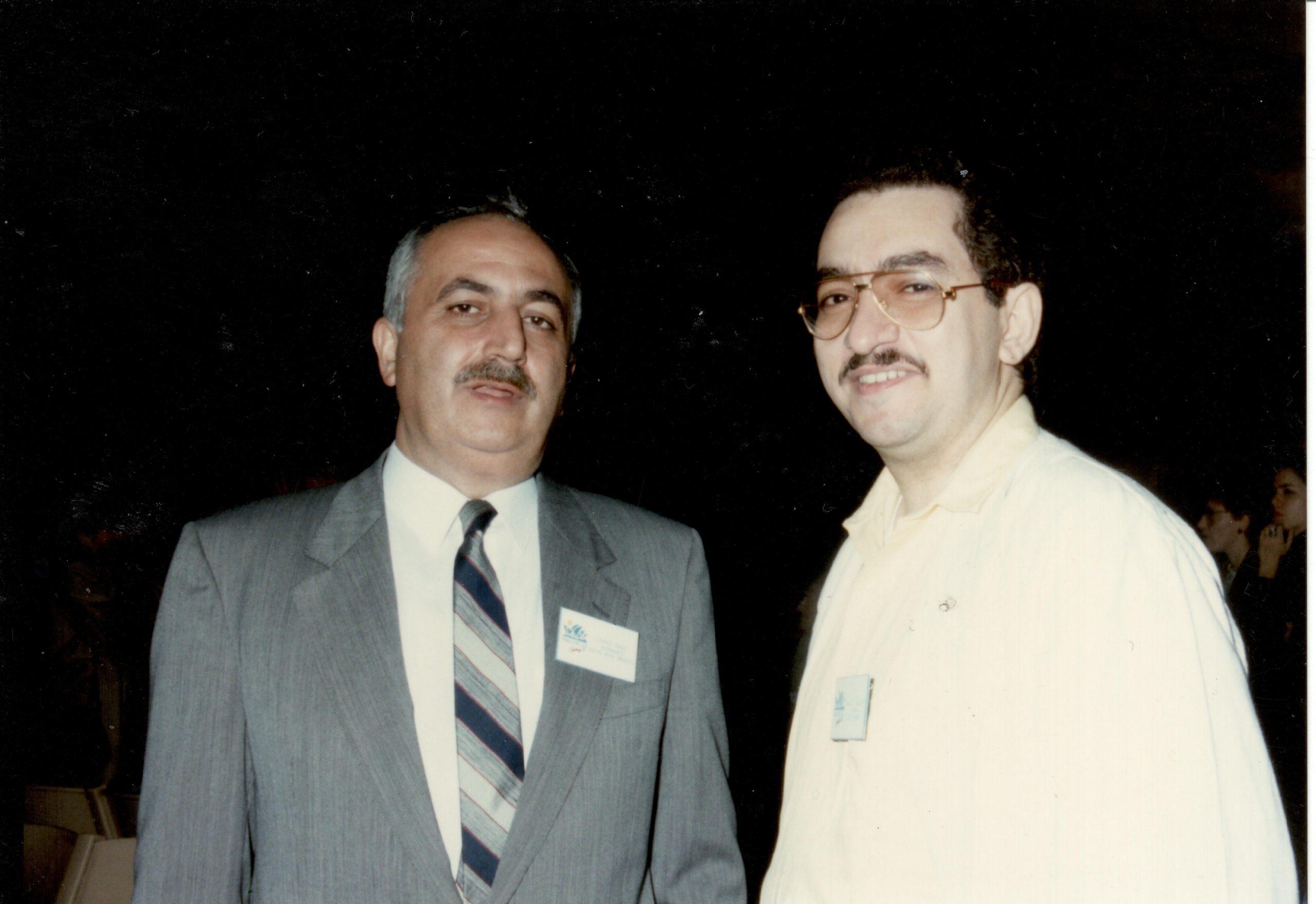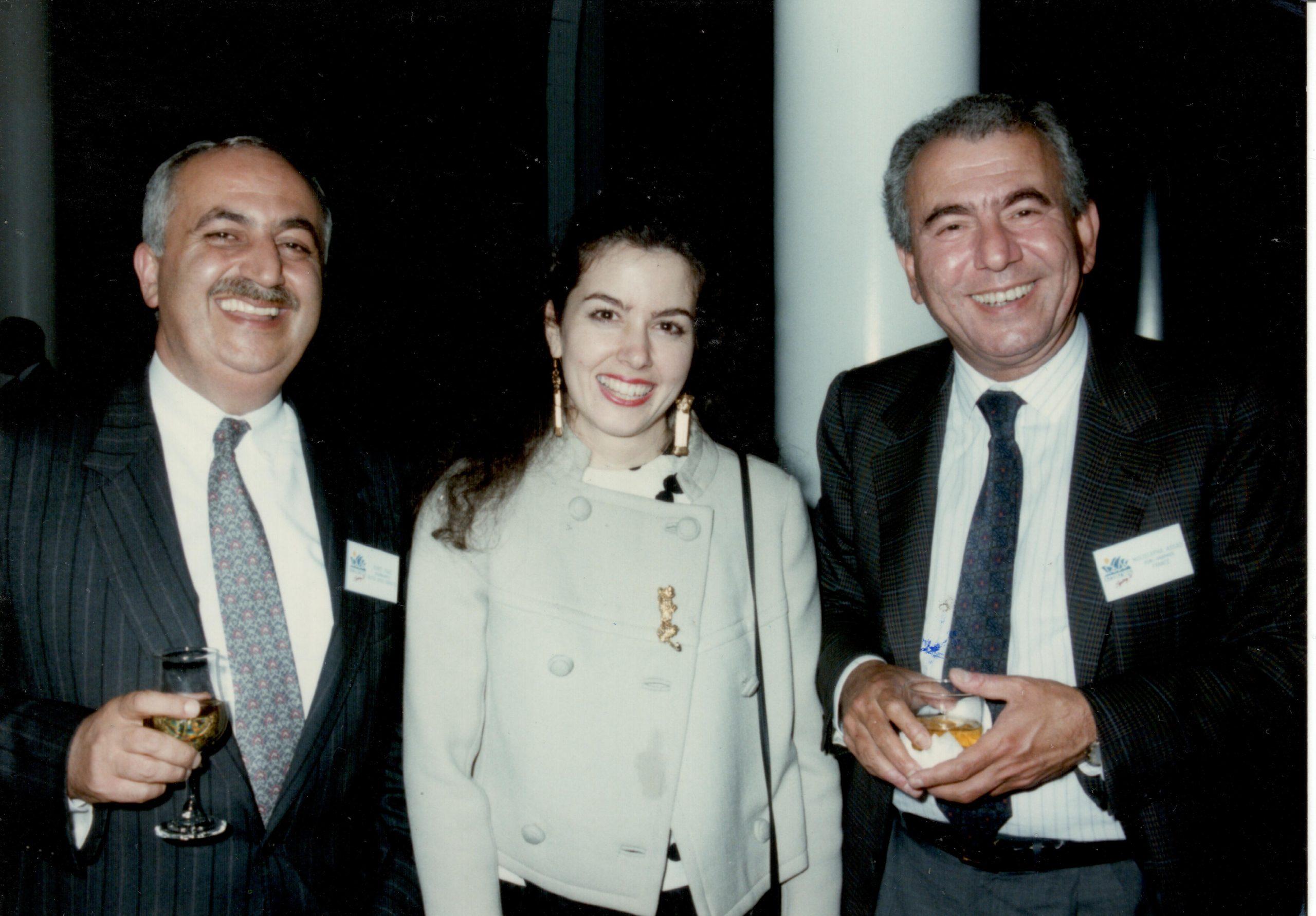I joined the International Advertising Association (IAA) Lebanon Chapter in 1970, when I was a Regional Account Director at HIMA. This was 16 years before Samir Fares dragged me to attend the UAE Chapter meeting.
In 1986, I joined the Lebanese Chapters’ delegation to my first IAA World Congress in Chicago. This was the IAA’s 30th world congress at a time when this international organization was at the peak of its global recognition and its leadership was monopolized by the Presidents and CEOs of the biggest American agencies.
Participating to the Lebanese delegation gave me the opportunity to bond with senior executives like Ghassan Tueini, Walid Azzi, Camille Menassa, Mustapha Assad and the Lebanese Ambassador to the USA, H.E. Abdallah Abou Habib.
The ushers at the congress were all graduate students in the school of Mass Communications at the University of Chicago. At one of the congress breaks, members of the Lebanese delegation were having coffee with a group of young blonde female ushers. During the casual chat, one of the Lebanese delegates mentioned the word “Islam”, that led one of the American girls to ask, “What is Islam?”
This made us realize how insular were the Americans, if their post graduate students were still ignorant of the four main religions of the world; while junior Lebanese students knew all such basic information. Another memory of the Chicago Congress was the fact that Ghassan Tueini’s youngest son, Makram, was studying in the US – at the time – and had joined his father at the congress. A year later when Makram passed away – pre-maturely – at the age of 26, we all felt with the bereaved father having seen the love he had for his youngest sibling.
In 1988 after my move to Dubai, joining the IAA UAE Chapter and getting elected to its presidency, I led a delegation to the 31st IAA World Congress in Australia.
The congress was held at the famous Sydney Opera House and this was the beginning of many memorable surprises that we all continued to cherish for many years. At the opening ceremony and after settling into our comfortable chairs and started recovering from the awestruck experience of walking inside the magnificent structure of the Opera House; the Congress Chairman Allan Johnson of Chiat Day Mojo, went on stage and whispered a short welcome followed by the explanation that there were many tribes of aborigine natives – in Australia – who still survived in their very primitive dwellings. These tribes continue to be protected by the government – from modern civilization – that has surrounded their original habitat. The Congress Chairman explained that a special permission had been secured to fly in, one of these tribes to perform their native dances – on stage – as a welcome gesture to Australia for our group of International guests. The chairman added that these people are not accustomed to artificial lighting, so the lights of the venue will be dimmed throughout the performance. They are also very sensitive to noise and sudden unexpected human reactions. He urged us to stay calm; not to clap, nor use flash photography nor applaud or stand up to demonstrate our feelings. As he completed his low-pitched introduction, he knelt down and used his zippo lighter to light a fire using the logs of wood that had been placed at the center of the stage. The lights were dimmed down, and total silence fell inside the opera house. Then a dark complexion, semi naked male with a bent back crept on stage. Put his hand over his eyes and looked around at the hall packed with a frozen dumb-struck audience, as if waiting to spot any movements. When he made sure that there were no dangerous movements anywhere around; he waved his hand with a gesture inviting his tribe to join him round the fire. More than thirty – same looking men – climbed on stage. Each stopped for a minutes familiarizing himself with the environment. Two were carrying a long bamboo stick in each hand, which they started thumping on the stage floor and this seemed to be the sign for the tribe to gather round the fire in circle. Then, as if hit by a laser pointer each jumped up high in his place and when he landed back on stage, the person next to him repeated the same gesture till the jumping ritual was completed round the fire. A humming sound that seemed to be coming from the very end of the stage was getting louder as the entire tribe went into a rhythmic dance involving what looked like a competition of jumping amongst the dancers – each in his place – then all joined in a synchronized dance and humming ritual round the fire that took more than twenty minutes. Then all came to a sudden stop when the tribe chief made a shrieking howl and walked down the stage followed by the rest of the tribe.
Total silence fell on the hall which was packed by hundreds of delegates who had flown in, from all around the world. Suddenly the blinding light came back on stage and the Conference Chairman walked back to the center, at that moment the entire conference stood up in reverence, clapping whistling and cheering.
As President of one of the large delegations, I was planned to chair one of the panel sessions on the 4th and last day. Heather Leembruggen, the congress secretary who was a close friend of Samir Fares came to me suggesting that I chair another session titled Advertising to Children, which I instantly accepted. The new timing was planned for the afternoon of the second day while our delegation had accepted an invitation from the Lebanese Ambassador on the 4th day at the same time that my earlier session was scheduled. Friends – familiar with the Australian domestic scene – started approaching me, warning that the topic of Advertising to Children is becoming controversial in Australia and the panel I will be chairing was expected to be attacked by certain working women groups.
As I went on stage in the side-room where my panel was to be held a lady came in and told me: “Mr. Raad beware that the attendees might throw rotten eggs and tomato on stage, after one of the panelists delivers her paper.” Luckily nothing of this happened and my chairmanship ran smoothly.
On the last day, we went back to the main hall – of the opera house – for the closing ceremony. In the wake of the unforgettable opening ceremony, we were all wondering how is going to be the closing ceremony? There was intensive murmuring in the hall till a tall Australian cowboy – with a thick white beard and a crocodile Dundee type of straw hat – walked up stage carrying his guitar and followed by around 50 young boys all dressed in blue jeans and white tee-shirts. The warm voice of the congress chairman echoed via the opera house’s magnificent sound system introducing Declan Affley a well-known local folk singer accompanied by the Sydney Children Choir, who instantly broke into a repertoire of folk songs – and to the amazement of the conference delegates – their songs covered all corners of the globe. They sang American, French, German, Spanish, Greek even Lebanese folk songs. Then the Congress Chairman came back on the sound system to say:
“We have very much enjoyed having you amongst us here down under. Now go back home and tell your folks that you’ve been to Australia and sang at the Sydney Opera House.” At that moment Declan and the choir broke into the song “Waltzing Matilda” and we all joined as the lights in the hall were gradually dimmed.
Everybody walked out while I went towards the stage looking for Allan Johnson whom I found in the control room folding his voluminous mole-skin notepad which he was using as his que sheet throughout the conference days. I presented Mr. Johnson with a bottle of Dom Perignon champagne – on behalf of the UAE Chapter – which I had carried along from Dubai.
Related Chapters…
-
Chapter 93\ The years spent working on industry issues
I joined the International Advertising Association (IAA) Lebanon Chapter in 1970, when I was a Regional Account…
-
Chapter 99\ Making the IAA a beauty parlor for Egos
During my early days at the IAA, I noticed that the leadership of this global organization was…
